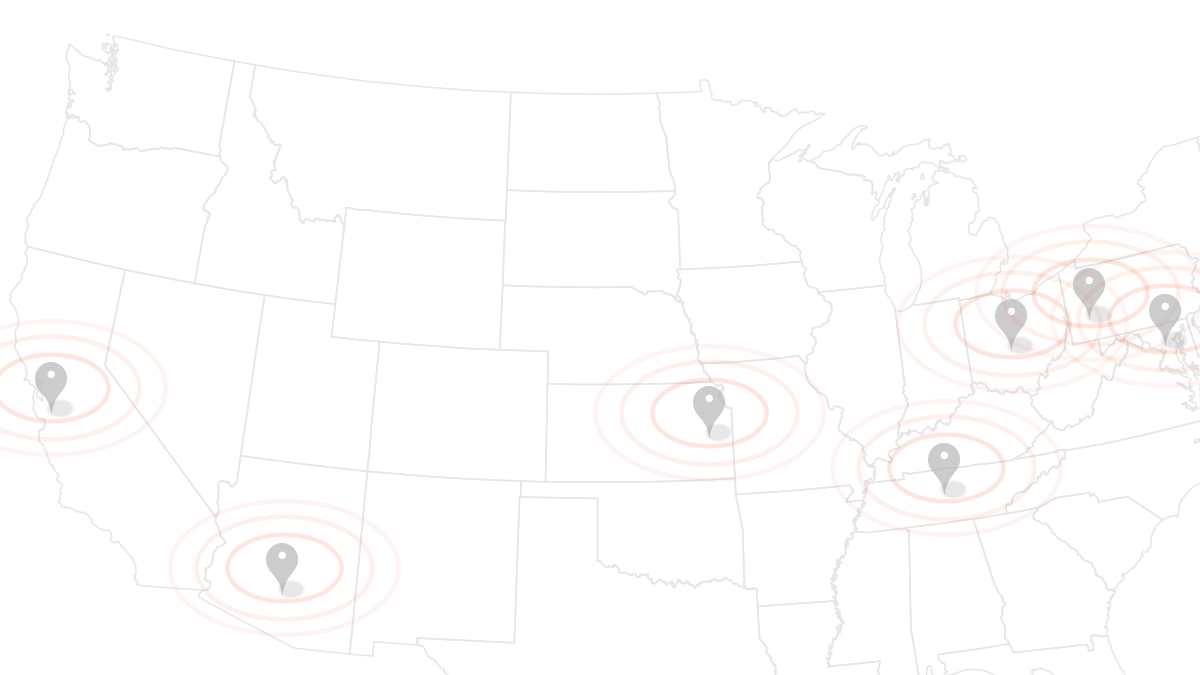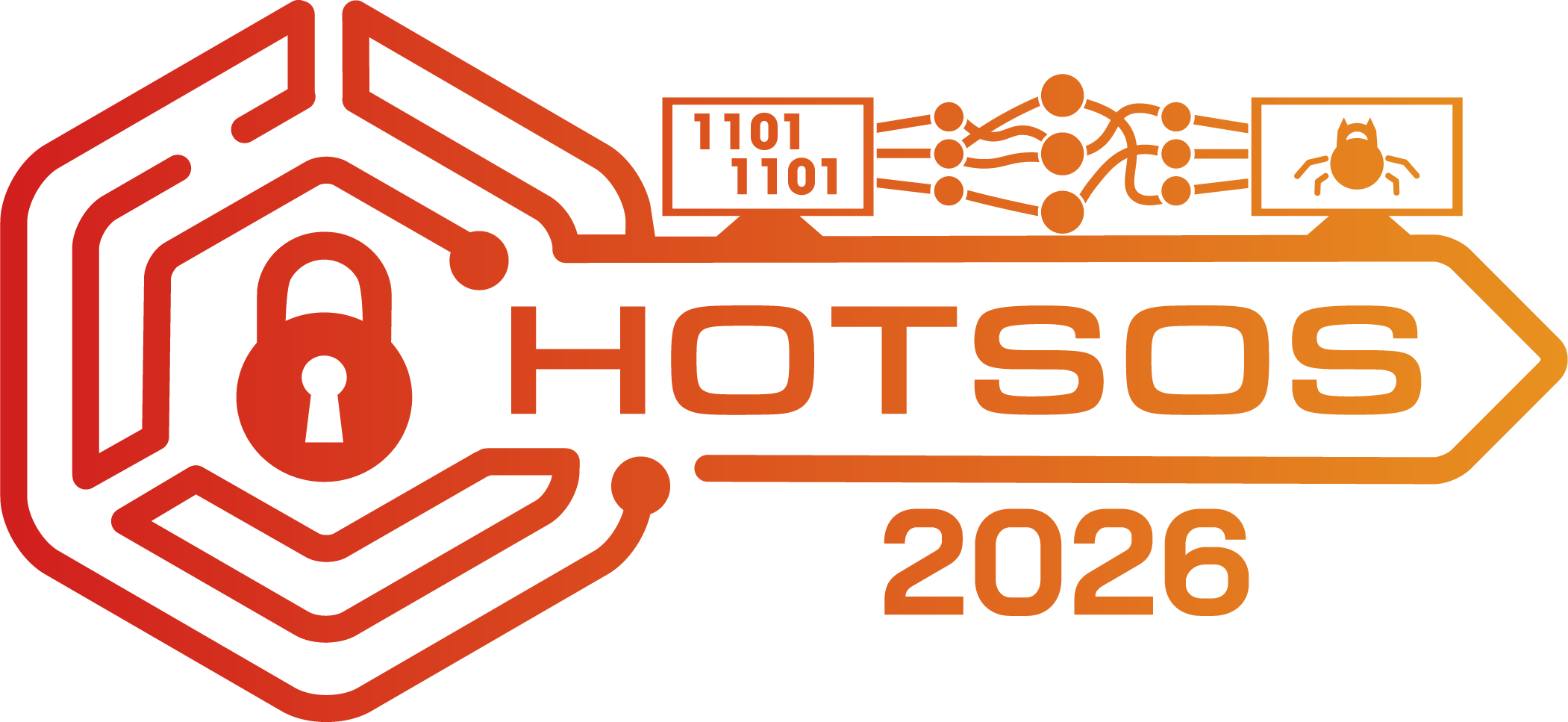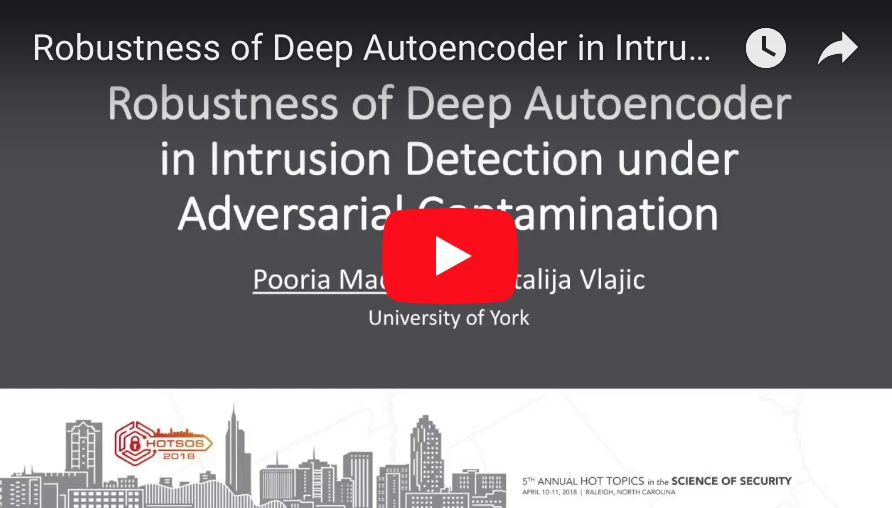Robustness of Deep Autoencoder in Intrusion Detection under Adversarial Contamination
BIO
Pooria Madani is a Ph.D. candidate at the Lassonde School of Engineering, York University, specializing in the areas of computer security and adversarial machine learning. He obtained his M.Sc., specialized in Adaptive Intelligent Systems, from University of New Brunswick in 2015. |
 |
|
ABSTRACT The existing state-of-the-art in the field of intrusion detection systems (IDSs) generally involves some use of machine learning algorithms. However, the computer security community is growing increasingly aware that a sophisticated adversary could target the learning module of these IDSs in order to circumvent future detections. Consequently, going forward, robustness of machine-learning based IDSs against adversarial manipulation (i.e., poisoning) will be the key factor for the overall success of these systems in the real world. In our work, we focus on adaptive IDSs that use anomaly- based detection to identify malicious activities in an information system. To be able to evaluate the susceptibility of these IDSs to deliberate adversarial poisoning, we have developed a novel frame- work for their performance testing under adversarial contamination. We have also studied the viability of using deep autoencoders in the detection of anomalies in adaptive IDSs, as well as their overall robustness against adversarial poisoning. Our experimental results show that our proposed autoencoder-based IDS outperforms a generic PCA-based counterpart by more than 15% in terms of detection accuracy. The obtained results concerning the detection ability of the deep autoencoder IDS under adversarial contamination, compared to that of the PCA-based IDS, are also encouraging, with the deep autoencoder IDS maintaining a more stable detection in parallel to limiting the contamination of its training dataset to just bellow 2%. |
|


